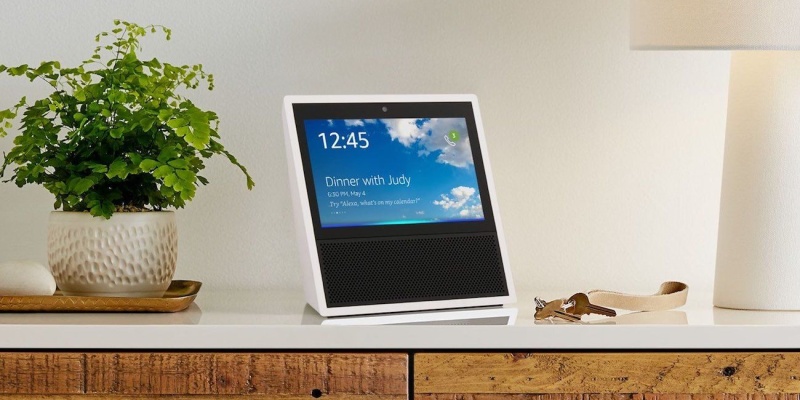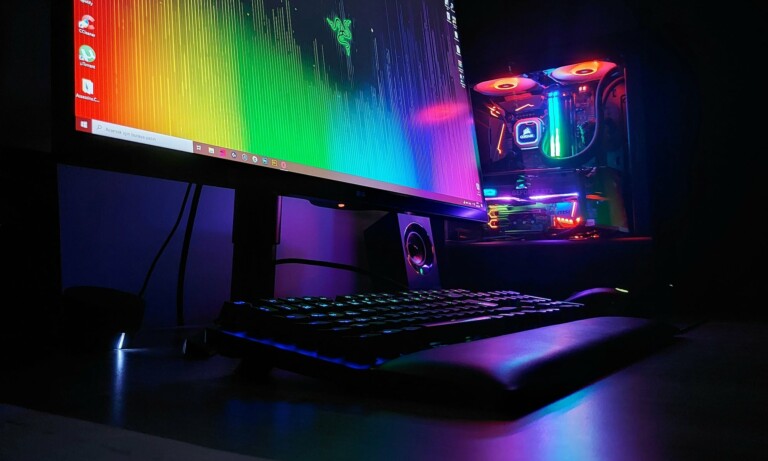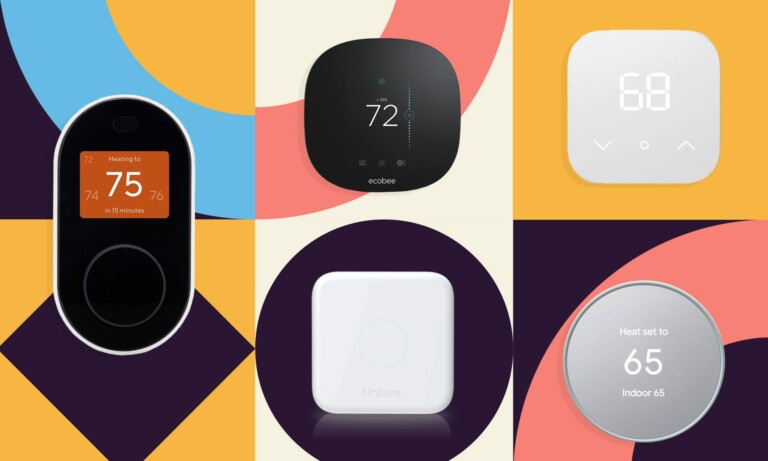Should we welcome new hardware from the tech giants?
In the digital world, Facebook, Google and Amazon have steamrolled the competition out of existence. Now these tech giants are making hardware, some people are predicting a similar outcome in the smart home domain. Here’s why we think differently.

- What is Facebook Portal? It’s a pair of new smart video calling devices, designed to be used in home or office environments.
- What is Google Home Hub? It’s Google’s attempt to create a smart hub for your smart home, complete with Google Assistant.
- Will the tech giants take over our homes? Perhaps — but only if we allow them to. It’s likely that more third-party companies will enter the smart home market over time.
For many of us, the idea of welcoming the tech giants into our homes is pretty unpleasant. You might enjoy the convenience of setting your thermostat with voice commands but hate the fact Google knows how warm your bedroom is. Worse still, Facebook might actually be in your bedroom.
This might seem like an inevitable reality of forward progress. But could the tech giants actually lead us towards more competition?
Why are the tech giants keen on smart home tech?

Smart home tech
It’s easy to see why Facebook, Google and Amazon want to gain a foothold in your home. Compared with anything you do or say online, your habits at home say far more about your potential buying decisions. This data is like gold dust for companies that thrive on advertising.

Amazon Echo Show
Of the big three, Amazon has been the most enterprising thus far. The company’s Echo range lets you control your smart home tech with voice commands, while niche devices can help you listen to music or pick an outfit.

Google Home Hub
Google has concentrated on the control aspect. The new Google Home Hub puts the power of Google Assistant on your kitchen worktop. This static tablet can even detect all the wireless speakers in your home.

Facebook Portal Plus
Facebook, the newbie here, has just released two Portal devices. They use intelligent cameras to track your face around the room, providing a better video chat experience.
Will Google and Amazon take over my home?
It’s clear that the likes of Google, Amazon and Facebook would like to hold a monopoly over smart home tech. While that could happen, we think it’s unlikely.
[tweet_box]Could the tech giants be inadvertently leading us towards more competition?[/tweet_box]
Why? Firstly, other companies have more experience in making certain devices. These brands can springboard off the innovation provided by the tech giants. You should have the option to choose your integrations — Google, Alexa, HomeKit, etc. — or just stick with standalone smart things. In addition, there are countless branches off these trees of innovation for accessories such as cases, stands, and more.
Here are some early examples of third-party tech:
Lynx Alexa-Enabled Robot

Lynx Alexa-enabled robot
This little android can read your emails out loud for you. In addition, you can talk to Alexa through Lynx.
Price: $799.99 USD
Yamaha WX-021BL MusicCast 20 Wireless Speaker

Yamaha smart speaker
For tech-savvy audiophiles, this speaker offers a significant upgrade on Echo sound quality. Along with Alexa, you can stream songs via Spotify Connect and AirPlay.
Price: $229.95 USD
HP Tango Smart Home Printer

HP Tango smart printer
This compact printer and scanner lets you churn out documents with impressive speed. What’s more, you can control the print queue via Amazon Alexa, Google Home, and Microsoft Cortana.
Price: $149.99 USD
LIFX Mini Color Smart Bulb

LIFX Mini smart bulb
With 16 million colors and animated “scenes,” this smart bulb gives you complete control over the lighting in your home. It works with Amazon Alexa, Apple HomeKit, and Google Home.
Price: $25.99 USD
Hisense Hi-Smart Portable Air Conditioner

HiSense smart AC
This easy-to-install AC unit offers remote control via the cloud. You can also link Alexa to control the airflow with voice commands.
Price: $389 USD
New hardware
What’s your take on the future of smart home tech? Will the tech giants rule supreme? Share your predictions in the comments!

Your inbox is missing this newsletter!
*When you sign up, expect newsletters, promotions, and agree to our Terms of Use, acknowledging our Privacy's data practices.















